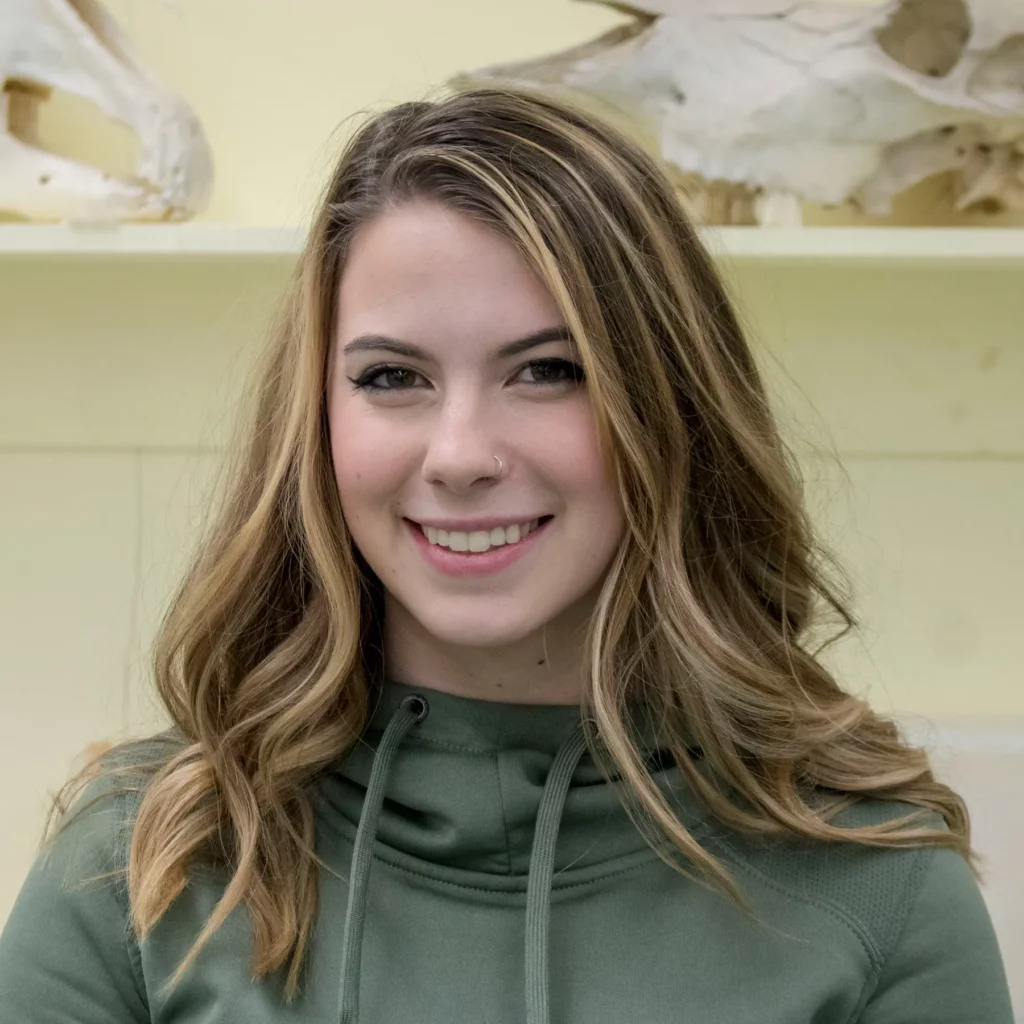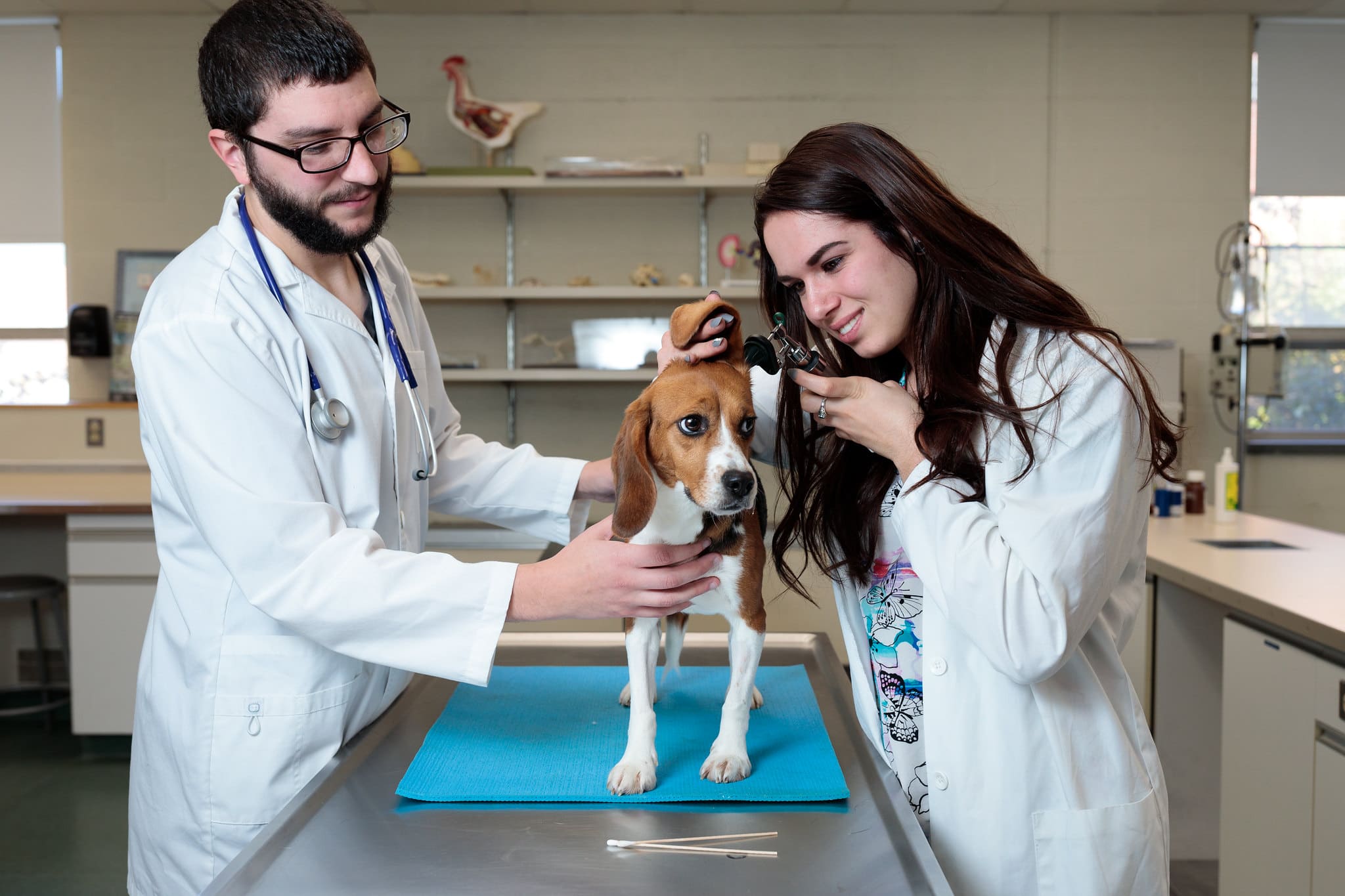Why Study Veterinary Technology at Vermont State?
- Extensive Hands-On Experience From Day One: You’ll work with a range of furry, flying, and slithering species — from pets to livestock to wild animals — as you expand your skillset. You’ll also complete a 300-hour externship, at least half of that at a primary care small-animal practice, between the program’s first and second years to learn from professionals at work. Many students are hired by their externship placements as soon as they graduate.
- 100% Placement Rate: All of our veterinary technician graduates were employed or enrolled in further education programs within six months after graduating. They started veterinary technology jobs at veterinary practices, universities, pharmaceutical/biological research companies, diagnostic labs, feed companies, zoos, and government veterinary facilities.
- VTNE Qualification: You’ll be eligible to take the Veterinary Technician National Exam (VTNE), which gives those who pass a license to practice in almost every state. See our student pass rates. In Vermont, you can also apply to become a Certified Veterinary Technician (CVT). These credentials will open exciting opportunities for you in a variety of vet tech careers.
- Easy Transition to a Bachelor’s Degree: If you want to continue your education, you’ll be well-positioned to pursue a bachelor’s, such as a Vermont State Bachelor of Science in Business. You also could choose the B.S. in Animal Science at the University of Vermont through a cooperative agreement.
- Small Classes to Grow Big Ideas: Vermont State students love our small class sizes. You’ll have the attention you need from professors, the chance to become friends with your classmates, and the freedom to feed your curiosity — and your ambition.
Request Information
Sample Courses
- Animal Behavior
- Veterinary Clinical Techniques
- Veterinary Technician National Exam Prep Seminar
- Animal Diseases
Related Programs
Student Stories

“The veterinary science field will provide me with a hands-on career where I can work with animals of all types.”
Greta Kuhnly






